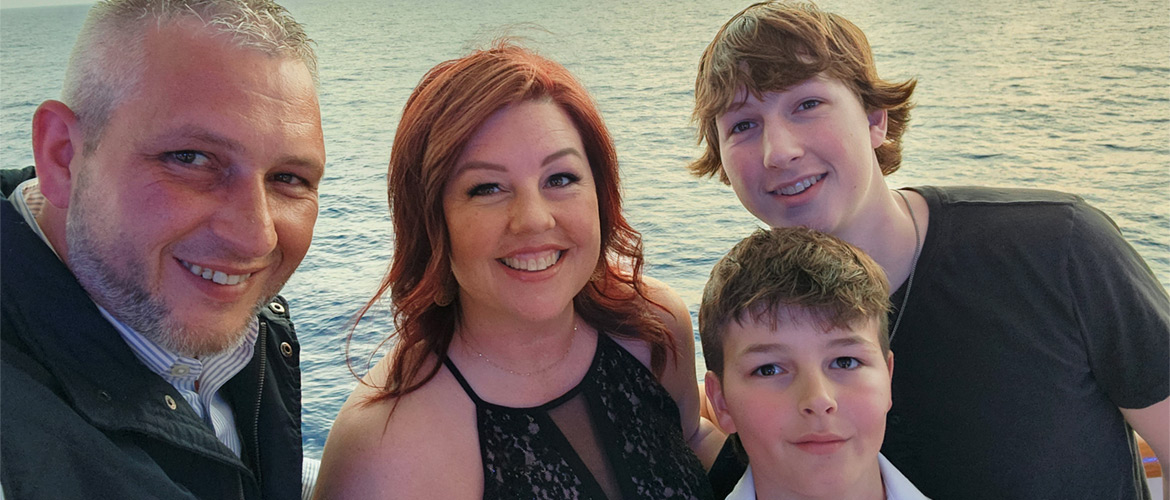April Turley typically helps members through their health journeys as a case manager for Blue Cross and Blue Shield of Oklahoma. But an interaction with one member may have inadvertently saved Turley’s life.
“I totally believe God places things in our lives for a reason, and this was an example of that,” the Skiatook native says.
In January 2022, Turley learned of a 29-year-old BCBSOK member newly diagnosed with stage three breast cancer. A couple of months later Turley followed up with the member and had an ominous thought.
"She’s 29 and she has breast cancer,” Turley recalls. “I’m 38 and I could have breast cancer and so could my friends.”
While performing a self-examination, Turley noticed a sharp, spikey lump around her breast.
“I thought, ‘Oh, my God. I know this is it,’” she says of the lump that had been undetected during her well-woman examination the prior summer.
Turley says she put off following up with her health care provider because “as health care professionals, sometimes we put ourselves last, like we do as moms. We just think, ‘Oh, well. It’ll work out.’”
But not long afterward, the same member reached out to Turley and asked about her wig benefits. This time, Turley took notice and scheduled an appointment.
Turley was diagnosed with stage one invasive ductal carcinoma, the most common form of breast cancer. Her treatment plan included a double mastectomy, allowing Turley to avoid chemotherapy and radiation.
It has been more than two years since her diagnosis and more than a year since her reconstructive surgery. Turley’s recovery has gone well, and she’s learned a lot that she hopes to share with other women.
“I believe that self-breast exams with some education can help you,” Turley says. “I wouldn’t have caught the lump if I had waited until my next mammogram, which wouldn’t have taken place until 18 months after my diagnosis.”
Turley is a BCBSOK member, as well as employee. She encourages anyone who receives a similar diagnosis to educate themselves on the breast cancer benefits offered.
“Working at Blue Cross and then being the member, I knew what my resources were. I knew my policy front and back. I knew what was covered,” Turley says. “But, even in all of that, it was very overwhelming, and I was able to call a case manager, like myself, and say, ‘What do I need to do?’ Or they were able to call me and say, ‘Hey, we saw that you have an ultrasound or an MRI and this is what we need to do.’ That was very helpful.”
Her experience has also helped Turley gain perspective talking to members every day.
“I think that, as an employee, I see how we help people. That’s why I’m here. That’s what makes it work,” she says. “So, my goal is to advocate for other women. I try to encourage my own members who are going through similar situations, or any kind of situation, to be their own advocate. Do your self-exams. Go see your doctors and follow up.”

